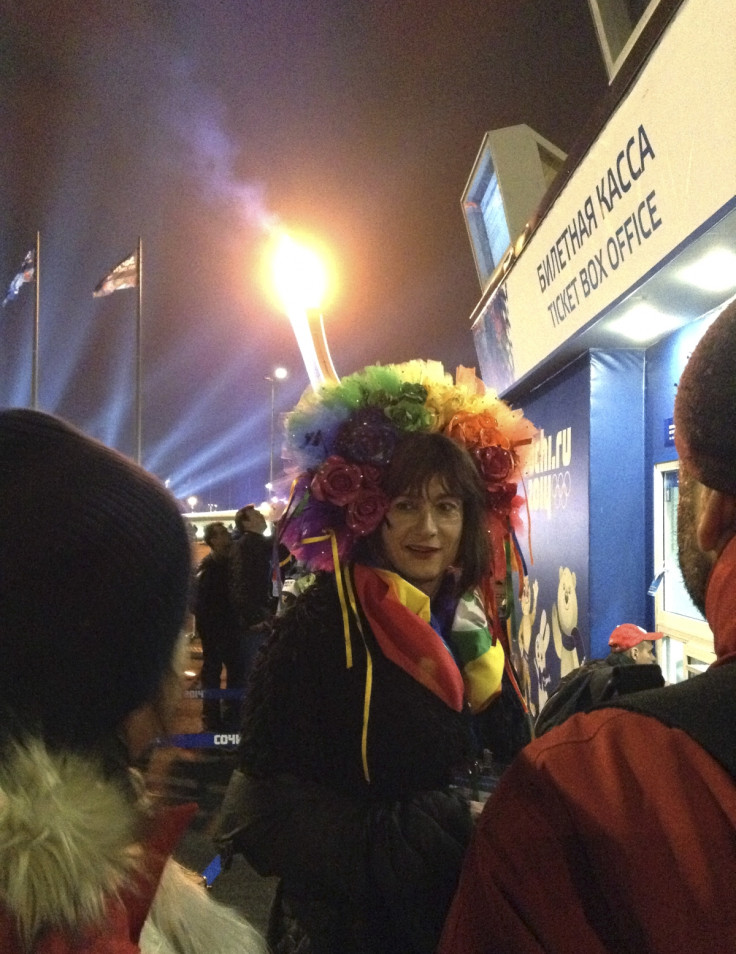Sochi 2014: Russia was Right in Removing Italian Transgender Vladimir Luxuria, IOC says

The International Olympic Committee (IOC) has defended Russia's removal of Italian LGBT activist and former member of parliament Vladimir Luxuria from Sochi, venue of the Russian Winter Olympics.
Hours after being released by Russian police, the activist was stopped a second time as she entered Shayba Arena at the Olympic Park to watch a hockey game and was arrested by plainclothes men who took her away, along with other two Italian journalists of popular TV show Le Iene.
Luxuria was sporting a rainbow dress and had been walking around Olympic Park for nearly two hours. Russian spectators took pictures of the gay rights activist, thinking she was a carnival character.
She told AP she was kept in the car for about 10 minutes, then released in the countryside after the men had taken her Olympic spectator pass.
However, IOC spokesman Mark Adams defended Russian authorities saying the activist was led away peacefully and not arrested.
"I know her stated aim to demonstrate in the venue and I believe after a couple of hours when she finally got to the venue I think she was escorted from there peacefully, not detained," Adams said. "What happened yesterday is a little bit unclear, I understand she was in the park, walking around, taking to spectators. Some people were pro, some were against, some were very against,"
He said Olympic Park is not the right place for demonstrations: "We would ask anyone to make their case somewhere else."
The IOC has strict rules against protests or propaganda during competitions, outlawing any demonstrations in Olympic venue.
The transgender former MP was first detained on Sunday when she held up a sign saying "Gay is OK" in Russian in the Olympic Park.
"I think it is important ...(to have) the opportunity to talk internationally about these things because otherwise these things happen in Russia and nobody knows, nobody cares," Luxuria said after stepping off the stage at a gay cabaret bar in Sochi.
"They think: 'Well, it's not in our country, it's far away, it's in Russia, who cares?'"
© Copyright IBTimes 2025. All rights reserved.






















